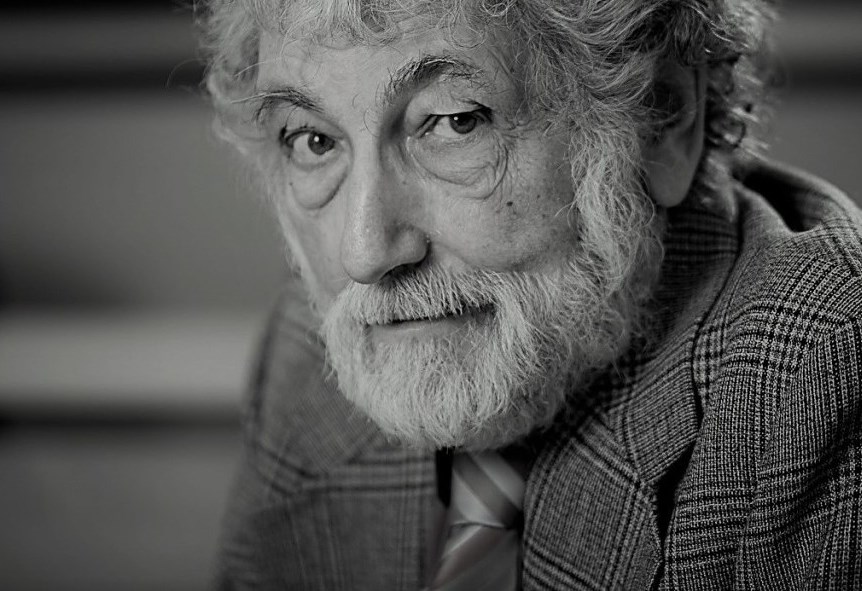
Why Understanding of Texts Worsens with Age
Psycholinguists from the Centre for Language and Brain, HSE University, have found that to predict semantic relations between words when reading, older adults use their knowledge of the world instead of grammar more often than young adults. Reliance on the meaning of individual words instead of accurate grammar analysis allows for faster information processing, but sometimes causes misinterpretations. The study has been published by the Quarterly Journal of Experimental Psychology.

'My Amateur Interest in Korean Art Had Evolved into a Profession'
On November 4-6, 2021, the 14th Kyujanggak International Symposium on Korean Studies took place. This is one of the world’s most prestigious academic Korean Studies gatherings, attracting leading experts from various countries. Elena Khokhlova, Associate Professor of the HSE School of Asian Studies, presented the results of her research at the symposium. We talked to Elena about the event, and her interest in Korean studies, as well as HSE students’ research and interest in Korea.

Researchers Investigate Link Between Bilingualism and False Memories
HSE University researchers have discovered that false information in one’s native and second languages contribute equally to the formation of false memories. The study, entitled ‘False Memories in Native and Foreign Languages’, has beenpublished in the journal Frontiers in Psychology.

HSE University among Founders of Super C-Tau Factory
Ten universities and institutes have announced a partnership to construct an electron-positron collider in order to study the production and properties of charmed particles and tau leptons. The new experiment will be part of the Super C-Tau Factory project. It was founded by two international teams and eight from Russia, including HSE University.

HSE University Researchers Investigate Why Many Russians Oppose Vaccination
Despite the risks associated with COVID-19 infection, many Russians either refuse to get vaccinated or are uncertain and hesitant about the practice. The factors behind these views are the subject of research by Yana Roshchina, Leading Research Fellow of the HSE University Centre for Longitudinal Studies and Senior Research Fellow of the Laboratory for Studies in Economic Sociology (LSES); Sergey Roshchin, Head of the Laboratory for Labour Market Studies (LLMS) and HSE University Vice Rector; and Ksenia Rozhkova, Junior Research Fellow at LLMS. The results of the study were presented at an LSES seminar.

Cortex Suppression Resolves Motivation Conflict in Favour of Prosociality
HSE University researchers have found that if cortical excitability is suppressed, the conflict between self-interest and prosocial motivations is resolved in favour of the latter—but only in cases when this conflict is really present.

Demography and Social Policy: First Readings in Memory of A.G. Vishnevsky Held at HSE University
The Human Capital Multidisciplinary Research Center, together with the Vishnevsky Institute of Demography and the International Laboratory for Population and Health, organized the first demographic readings in memory of HSE University Professor Anatoly Vishnevsky, the first director of the Institute. The experts in attendance discussed a wide range of topics, including family policy, how to improve the conditions of low-income people, and how to correct market and employment setbacks.

‘The Human Brain Has Always Fascinated Me’
Alexios Kouzalis, from Cyprus, is a first-year PhD student at the HSE University School of Psychology. We talked with Alexis about his reasons for coming to HSE Moscow, his achievements and his observations on life in the Russian capital.

The Majority of Russians Do Not Support Microchip Implants
The majority of Russians would not agree to being fitted with microchip implants for any purposes—medical or otherwise. A joint study conducted by HSE University’s International Laboratory for Applied Network Research and Aventica found that respondents believe the risks of personal data leaks and misuse to be too high.

Young Russians Feel ‘Phubbed’ by Friends and Family
Researchers from HSE University, Saint Petersburg State University, Moscow Engineering Physics Institute (MEPhI), and Kostroma State University have analyzed data on internet addiction and ‘phubbing’ behaviour from the past decade. They found that more and more people are suffering from smartphone addiction. At the same time, situations in which communication is split into real and virtual formats are becoming part of everyday life, which is bad for our relationships. Although phubbing was found to be the new normal among young people, the respondents often feel like victims of phubbing and its negative consequences. The results are published in Monitoring of Public Opinion: Economic and Social Changes.

